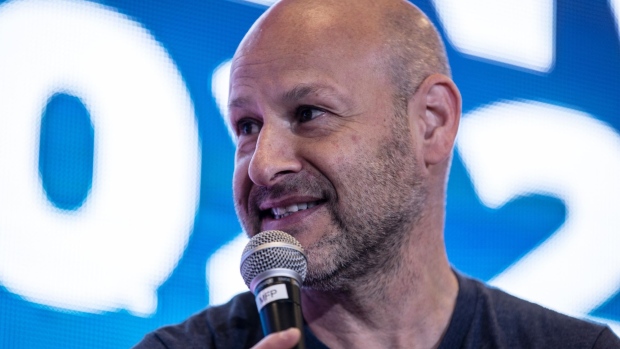Sep 16, 2022
Key Player In Ethereum Infrastructure Infura Rejects Centralization Claim
, Bloomberg News

(Bloomberg) -- One of the most influential entities in crypto is pushing back in its own way against criticism that Thursday’s revision of Ethereum will lead to more centralized control of the blockchain network.
Infura, a key infrastructure provider controlled by Joseph Lubin’s ConsenSys, plans to offer a decentralized version of its service, which effectively runs network nodes so developers and users of apps like MetaMask don’t have to do it themselves. Think of it as Amazon Web Services for Ethereum and other blockchains, like Polygon and Near. Lubin is a co-founder of Ethereum.
At times, more than 50% of transactions on the Ethereum network ran through Infura, according to Eleazar Galano, the company’s co-founder. So its plan to offer a decentralized version of the service -- likely to launch in the first half of 2023 -- could have major implications for who holds power on Ethereum. That is something that everyone from regulators to investors are keeping a close eye on.
Worries about centralization on Ethereum have spiked after the network moved to a new system of ordering transactions, called proof of stake, on Sept. 15. The system relies on a handful of so-called builders -- who may end up wielding a lot to power -- to package transactions into blocks. The builders then pass these blocks on to entities called validators, who order them into the blockchain using stakes of Ether coins. Five companies and efforts -- Lido, Coinbase, Kraken, Binance and Staked -- account for more than 60% of all Ether staked on the network, according to researcher Nansen. And then there’s Infura, with its network of nodes used by who-is-who in crypto.
“We have more impact than what we’d be comfortable with, on the ecosystem,” Galano said in an interview. ConsenSys was started by Lubin, and it also operates MetaMask, the most popular self-custody cryptocurrency wallet. Infura, which competes with the likes of Alchemy and Blockdaemon, serves more than 430,000 developers worldwide.
As the number of so-called decentralized apps -- largely run by their communities of users -- continues to explode, many of their developers and users want to get away from relying on centralized infrastructure like what Infura offers.
Infura’s plans are still being ironed out. It hopes to build a new network of decentralized nod operators -- of which it will be one -- to cater to what are being referred to as Web3 applications. Infura may make its software open source and share its coding tools; it’s also exploring issuing a token, so clients could pay for usage, Galano said. Infura is already accepting applications from operators interested in joining its early access program.
“It helps solve one of the concerns about the centralization problem with Ethereum,” Galano said. “What we are doing is, when people are accessing the data it can be done in a decentralized way.”
Infura, which launched in 2016, will continue to offer a centralized version of the service as well.
©2022 Bloomberg L.P.





